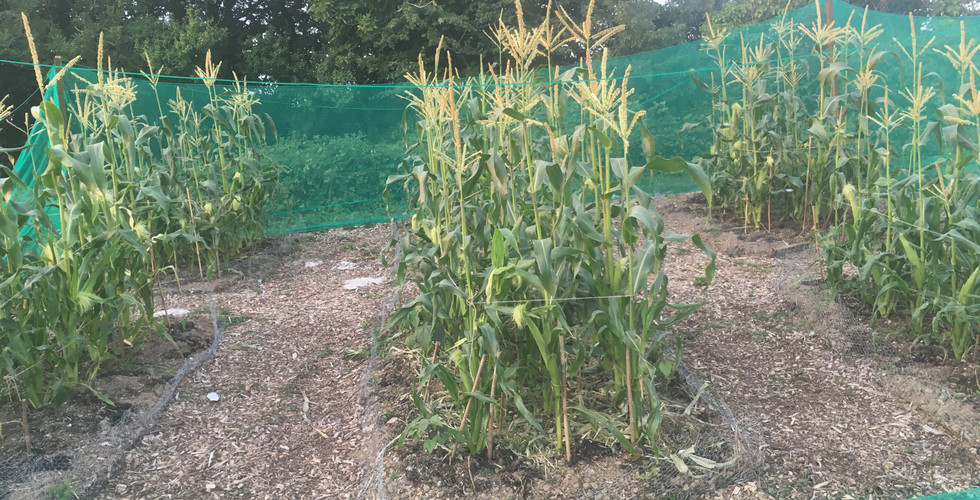Growing vegetables in a drought
- Lorraine Campbell
- Aug 9, 2025
- 2 min read
Updated: Nov 10, 2025
Last year I created 6 vegetable beds using a method of 'no-till method combined with a permaculture method of lasagna layering. Essentially a thick cardboard layer, followed by farm manure, then a layer of straw, some greens, leaves and seaweed. I then added a layer of quite dry sandy loam, typical of Cornwall. On the top I added 5% of shop bought concentrated farmyard manure. These beds were used for a trials project. I grew Sweetcorn very successfully here. They were inter-planted with dwarf french beans but these have been a target for slugs and none survived. 3 beds were my control (nothing added) and 3 were my treatment beds (added bio amendments)
You can see my full report https://www.soilresilience.com/trials and the continuation of the trials here.


Garlic was grown in both Control and treatment beds. on the 12th October 2024 together with a cover plant "wild strawberry. The plants were doing really well. Although our Spring started very early in March, and it was unseasonably dry. During Spring in Cornwall we did have a few heavy downpours so I only watered a few times from the 10th May. But since I started to water, I then noticed blight. I don't know if it was a co-incidence but they all suffered from rust. Both Treatment and Control. Only one application of bio-amendments were added as the weather conditions were too dry later on.
These were harvested a little too late. I had left them in the ground because although dying back snails were happy grazing on them as I let a new crop of sweetcorn establish. The wild strawberry has populated well and were cut and used as a mulch layer.
Sadly the sweetcorn didn't make it. They still grew but it was a very long dry Summer with little or no rain and so the cobs didn't amount to anything. The plants were lacking in organic matter. So to start to remedy this the Wild Strawberries have been cut, chopped and dropped on the beds to rot down, this was done 4 time during summer
However we harvested 11,039kg of garlic from the 3 treatment beds, and 8,175kg from the 3 control beds. Making a total of 19,214kg of garlic in all 6 beds.
Autumn 2025 up-date. To add more humus to the beds C1, C2, T1, T2 received a layer of compost. After planting garlic in all beds, mulch was created using fresh mown grass and leaves. This was added to all beds in a thick layer.
The garlic has started to grow, and once it is a little bigger chopped seaweed will be added.
Bio liquid extract was applied to T1, T2 T3 on the 3rd November 2025.





Comments